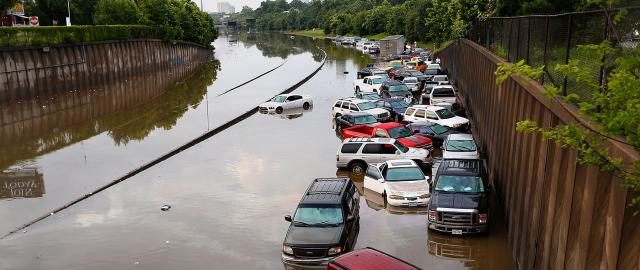Urban Green Infrastructure: Science, Operation and Finance
About the Conference
Watch the recorded morning sessions. Watch the recorded afternoon sessions.
Cities are increasingly vulnerable to acute shocks such as heat waves and major flooding. As one part of the response, green infrastructure solutions can offer a wide array of environmental, economic and social benefits to cities – while also posing challenges and raising new questions.
The goal of the 2018 Hixon Center Conference is to share the latest thinking on the science behind, the operation of and the sources of funding for green infrastructure – while surfacing and exploring questions that are in the most need of answers.
We will explore these topics through four panels addressing the following broad questions:
- What is the latest science telling us about the performance of green infrastructure, particularly for managing water, temperature and health outcomes?
- What are managers of green infrastructure systems seeing in terms of costs and benefits from green infrastructure in action?
- What new sources of funding are being developed across different combinations of:
- Public sources of funding?
- For-profit sources of finance?
Speaker Information
Giovanni Zinn, P.E. is the City Engineer for the City of New Haven as of 2014. As City Engineer, he has worked on many projects focused on sustainable and livable infrastructure, including complete streets, encouraging alternative transportation options, adopting green infrastructure, designing resilient living shoreline installations, and reducing the City's carbon footprint through aggressive energy reduction. Prior to leading the Engineering Department, Giovanni also served as a project manager for the City of New Haven’s Engineering Department and Office of Sustainability and managed environmental programs for the City Plan Department. Giovanni graduated from Yale College in 2005, and lives in New Haven with his wife Megan and their three little boys (who keep them very busy!).
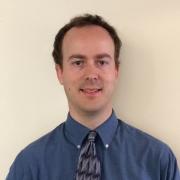
What is the science telling us about the opportunities and challenges for green infrastructure (GI) to help cities improve their performance on water, temperature and public health issues? How should we be thinking across scales–from individual GI installations to networks of GI units across different neighborhoods in a city? What are the major questions that still need to be answered as cities think about investing in green infrastructure, either alone or in combination with more traditional/ “grey” infrastructure?
Speaker Information
Gaboury Benoit is the Grinstein Professor of Environmental Chemistry at Yale’s School of Forestry and Environmental Studies, where he has served as the Associate Dean for Research and Director of Doctoral Studies. He has a joint appointment in Yale’s Environmental Engineering program. He founded Yale’s Center for Coastal and Watershed Systems in 1992 and acted as its faculty director. He is also faculty director of Yale’s Hixon Center for Urban Ecology.
Dr. Benoit received his bachelor’s degree from Yale’s Department of Geology and Geophysics where he studied environmental chemistry. After working for three years in an independent environmental consulting firm, he earned a master’s in Water Resources Engineering from MIT (1985) and a PhD in environmental chemistry from the M.I.T.-Woods Hole joint program (1988).
Gabe is a nationally recognized expert on environmental chemistry and the impacts of land development on water. Recent research includes urban environmental issues and watershed based studies of nonpoint source pollution. Among his many publications, he co-authored the book New Strategies for America's Watersheds: Integrating Ecological, Economic, and Social Factors that was published by National Academy Press in 1998. Another important recent publication is the book Land and Natural Development (L.A.N.D.) Code, co-authored with Diana Balmori of Yale’s Architecture School, and which is a set of guidelines for sustainable land development.
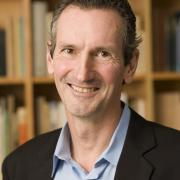
Speaker Information
Kimberly DiGiovanni, PhD is an Assistant Teaching Professor of Civil Engineering at Quinnipiac University (Hamden, CT). Dr. DiGiovanni’s research interests and focus include the eco-hydrology of natural vegetated spaces and engineered urban green spaces or green stormwater infrastructure. Her experience includes the design, implementation, maintenance and management of intensive site and block scale monitoring initiatives at dozens of sites across the Northeast United States including locations in Philadelphia PA, New York NY, and New Haven CT. Her work has led to advancements in green infrastructure (GI) design, performance monitoring, and quantification of GI benefits. Her collaborations span a variety of entities including both public and private agencies, educational institutions, and non-profit organizations. She is the principal and owner of Auroran Environmental LLC, where she serves as a consultant to the NYC DEP on GI research, design, and development. She was a US EPA funded post-doctoral research fellow in the Department of Civil and Environmental Engineering at Villanova University. She is a graduate of Drexel University’s doctoral program in Environmental Engineering, an NSF Graduate Research Fellow, and alumna of the Sustainable Water Resource Engineering Laboratory at Drexel University.
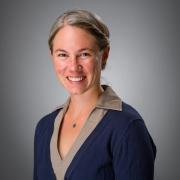
Speaker Information
Dr. Nooshin Razani is a pediatrician, researcher, and passionate advocate of the healing power of nature. She is the founder and director of the Center for Nature and Health, based at UCSF Benioff Children’s Hospital Oakland. The Center conducts original research related to nature and health, helps health care practitioners incorporate nature into their practice, and provides clinical care in nature. Dr. Razani is an attending physician at UCSF Beniofff Oakland’s Ambulatory Department and Assistant Clinical Scientist at Children’s Hospital Oakland Research Institute. Dr. Razani attended medical school at University of California San Francisco, completed a pediatric residency at UCSF Benioff Children’s Hospital Oakland, and has a Masters in Public Health from the Harvard School of Public Health. Dr. Razani has conducted primary research on the clinical applications of nature; given presentations about nature and health across the U.S., and published peer reviewed articles about the topic.

Abstract
Dr. Shandas will provide a summary of over a decade of research examining the implications of development patterns on green infrastructure, including trees and stormwater retention systems in the Pacific Northwest. The studies examine the role of green infrastructure in mediating biophysical (e.g. urban heat and air quality) and social behaviors (e.g. preferences and energy use).
Speaker Information
Vivek Shandas is a Professor of Urban Studies and Planning and the Research Director for the Institute for Sustainable Solutions at Portland State University. Dr. Shandas' research aims to address policy relevant questions by examining the feedbacks among urban form, governance systems, and human health and well-being. Dr. Shandas serves as Chair of the City of Portland's Urban Forestry Commission, and is a Principal at CAPA Strategies, LLC, a global consulting group that helps communities prepare for climate-induced disruptions.
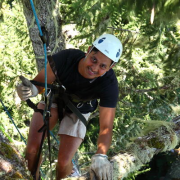
How are existing green infrastructure installations working in cities and at company facilities? In what circumstances are they meeting performance standards at a lower cost than more traditional apporaches–and where are they not? Are they meeting applicable regulatory standards–and where are they not? What are the most pressing questions facing efforts to improve the benefits and address the costs of their operational performance?
Speaker Information
At Alexandria Renew Enterprises (the wastewater agency in Alexandria, Virginia), Caitlin Feehan serves as the Program Manager for RiverRenew, the program constructing a tunnel system to reduce overflows from Alexandria’s combined sewer system. In her role, Caitlin oversees the program planning and engineering design of the tunnel system and will eventually oversee construction. Prior to this role, she served as the Assistant Green Infrastructure Manager for DC Water’s green infrastructure program and oversaw the engineering design, procurement, and program implementation of $45 million in green infrastructure projects. She also previously worked for an engineering firm and has over 10 years of experience working on water management, predominantly focused on combined sewer system management. She holds a master’s degree in Environmental Management from Yale University’s School of Forestry and Environmental Studies and a bachelor’s degree in Environmental Engineering from Northwestern University.
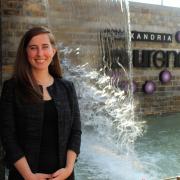
Speaker Information
Gerald W. Bright Jr. is an Environmental Scientist Supervisor with the Philadelphia Water Department (PWD) and has served as the manager of the Green Stormwater Operations unit since the fall of 2012. Prior to 2012, he worked within PWD’s Ecological Restoration Group as a project manager focusing on the physical and biological monitoring of PWD’s stream restoration and wetland creation projects; two-dimensional hydrodynamic and habitat modeling as well as public education and outreach at local schools, environmental centers and community groups. At Howard University, his research experience included work on juvenile blue crab (Callinectes sapidus) habitat utilization at the Smithsonian Environmental Research Center as well intraspecific competition in the invasive “rusty’ crayfish (Orconectes rusticus) in Baltimore’s Long Term Ecological Research system. He has also conducted field studies relating to the effects of urbanization on aquatic ecosystems and modeling solute transport in ground and surface water systems. In 2008 he graduated from the Yale School of Forestry and Environmental Studies with a Master’s degree in Environmental Science. His primary interests are stormwater management, urban renewal, the effects of urbanization on stream ecology and in-stream hydraulics, environmental justice and local politics. Gerald is a Philadelphia native, who endeavors to one day consolidate his multidisciplinary education and experience in a way that will allow him to help usher underrepresented neighborhoods and communities into the forefront of both the environmental and sustainability movements.

Speaker Information
As managing director and lead scientist of The Nature Conservancy’s new Center for Sustainability Science, Jen provides thought leadership on improving society’s ability to create a more sustainable future for nature and people, including through corporate practices and policy. The Center is focused on enabling transformative change by filling science gaps that are inhibiting large-scale uptake and implementation of sustainability solutions via corporate practices and policy.
Jen has 15 years of experience bringing science to decisions that improve the state of the natural world and how people depend on it, including through research, global assessments, corporate practice innovations, and environmental remediation.
She is the science lead for the TNC-Dow Chemical Company collaboration to incorporate nature and the value it provides to people into corporate decision-making. This work has led to Dow’s ground-breaking ten-year Valuing Nature Goal – a commitment to consider nature in all of the Fortune 50 company’s capital, R&D, and real estate decisions by 2020, while aiming to generate $1B in business value from projects that are good for business and good for ecosystems.
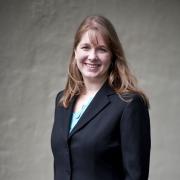
Abstract
Paula will discuss results of a collaborative project by the Exchange and Earth Economics that examines the rates of return from investments in green stormwater infrastructure factoring in co-benefits.
Speaker Information
Paula Conolly, AICP, is committed to making green stormwater infrastructure work in communities across North America. She is the Director of the Green Infrastructure Leadership Exchange (Exchange), a peer learning network of municipalities, water utilities, and counties seeking mainstream green stormwater infrastructure. Prior to the Exchange, she led policy initiatives for Philadelphia’s renowned Green City, Clean Waters program, helping to change “business as usual” to implement over 30 acres of green stormwater infrastructure on vacant lands, parks, streets and private property. Ms. Conolly helped to spearhead a state-of-the art drinking water protection program for the City of Philadelphia, helping to raise over $3M to improve and protect the Schuylkill River Watershed. Prior to that, Paula consulted on public health and environmental initiatives at Booz Allen Hamilton. Paula is a graduate of the University of Notre Dame.

Speaker Information
David Kooris is Director of Rebuild by Design and National Disaster Resilience for the State of Connecticut. These Federal grants, totaling $65 million, will enable resilience planning for Fairfield and New Haven Counties and the construction of several pilot projects for green infrastructure, raised mobility corridors, distributed energy generation, and 21st Century flood protection in Bridgeport. Prior to this position, Mr. Kooris was Director of the Office of Planning and Economic Development for Connecticut’s most populous city, Bridgeport. This role enabled him to chart a long-range strategy for the city’s revitalization grounded in its diverse neighborhoods, spur economic development in its downtown and commercial centers, and reposition thousands of acres of brownfields for sustainable redevelopment. Before assuming that appointment, Mr. Kooris held various positions at Regional Plan Association, the nation’s oldest regional planning organization, culminating in his role as Vice President. Mr. Kooris has worked on high-speed rail-oriented development, sustainability planning, and urban revitalization projects abroad in Canada, Turkey, Morocco, Spain, Mexico, Peru, Taiwan, and South Korea. Since the fall semester of 2012, Mr. Kooris has been a lecturer at Yale University’s Graduate School of Forestry and Environmental Studies in city and regional planning practice.
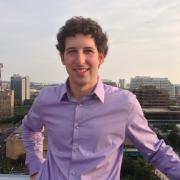
Speaker Information
Jeffrey R. Diehl is the Executive Director and CEO of Rhode Island Infrastructure Bank, a quasi-state agency whose mission is to invest in key infrastructure in the State of Rhode Island including programs focused onclean water, drinking water, road and bridge, brownfieldremediation, energy efficiency and renewable energy projects for municipalities, quasi-stateagencies, commercial and residential property owners. Mr. Diehl has over 35 years ofexperience in public finance and prior to this role was the Managing Partner of Strategic Sovereign Advisors LLC, a consulting firm advisinggovernmentsand financial institutions. Previously, he held variousseniorpositions at HSBC, a global financial institution, including Vice Chairman –US Public Sector and Global Head of Public Sector Banking. He holds BA and MBA degrees from the University of Michigan.
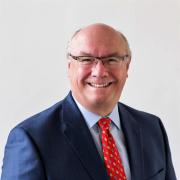
Speaker Information
Michelle Kondo, PhD, is a research social scientist with the USDA-Forest Service, Philadelphia Field Station. Her research focuses on place-based strategies for disease, violence, and injury prevention, most often in the context of legacy cities and low-resource communities in urban areas. She has conducted research on the impacts of blight remediation programs, abandoned building abatement, green stormwater infrastructure, vacant lot greening, and tree plantings on crime and violence outcomes, as well as on health and health inequalities. She has published meta-analyses on the state of research on urban green space and nature-based interventions as they relate to human health and safety, and on neighborhood-based interventions as they relate to violence and violence prevention. Her work has received awards from the US EPA Office of Research and Development, and by the Sustainable Business Network of Greater Philadelphia, and has been covered in outlets including NPR, Science, the NewYorker, TIME, the Conversation, and Philadelphia Inquirer. Dr. Kondo holds a PhD in urban design and planning, and completed a postdoctoral fellowship in epidemiology.
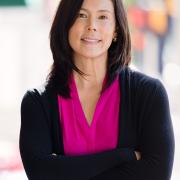
Speaker Information
Dr. French is the Director of Resilience for the Connecticut Department of Housing. In this role she oversees a $54.3M grant awarded to the State through the US HUD National Disaster Resilience Competition and the $10M Rebuild by Design pilot project to address acute and chronic flooding in the South End of Bridgeport, CT and prepare a regional resilience plan. She represents the agency on the Long Term Recovery Committee, the State Agencies Fostering Resilience Council and the Governor’s Council on Climate Change. Previously she was the Director of Community Engagement for the Connecticut Institute for Resilience and Climate Adaptation, a partnership between the University of Connecticut and the Connecticut Department of Energy and Environmental Protection. She was a AAAS Science &Technology Policy Fellow with the U.S. EPA Office of Research and Development and an American Geophysical Union Congressional Science Fellow in the United States Senate. Dr. French holds a B.A. from Oberlin College in chemistry and environmental studies, an M.S from Cornell University in soil chemistry and received her doctorate from Virginia Tech in geosciences. She is a native of northeast Connecticut and is married to Mark Derks. They live in Waterford and have one baby boy named Calder.
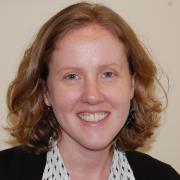
How are cities tapping into private sources of finance to help fund their green infrastructure work? What are the limits on those sources? What new and additional sources can and should be explored or created?
Speaker Information
Brad Gentry is the F.K. Weyerhaeuser Professor in the Practice at the Yale School of the Environment and the Yale School of Management, Senior Associate Dean for Professional Practice at the Yale School of the Environment, and a Director of the Yale Center for Business and the Environment. Trained as a biologist and a lawyer, his work focuses on strengthening the links between private investment and improved environmental performance, with a particular focus on increasing investment in natural areas. He has worked on land, water, energy, industrial and other projects in over 40 countries for private (GE, Suez Environnement, Working Lands Investment Partners), public (UNDP, World Bank, Secretariat for the Climate Change Convention, UNEP) and not-for-profit (Land Trust Alliance, The Trust for Public Land, the Northern Forest Center, SustainableCT) organizations. He holds a BA from Swarthmore College and a JD from Harvard Law School.
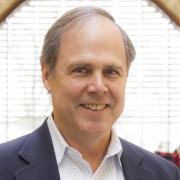
Abstract
Anadi Jauhari will explain current financing structures and funding sources including green and sustainability bonds, and describe how to create investible opportunities that bring capital from multiple sources including issues relating to pricing “impact” and “climate benefits”.
Speaker Information
Anadi Jauhari is a Senior Managing Director at Emerging Energy and Environment Investment Group (EEEIG), a New York-based alternative investment firm specializing in emerging infrastructure, sustainability and private markets investing.
In his current role, he heads the development of EEEIG's infrastructure strategy. He co-led the development of Emerging Energy Latin America Fund, a small scale renewable and clean energy infra project equity fund, which completed its investment mandate in 2016/17. His team is working on investments opportunities in decentralized and distributed infrastructure. He is also responsible for directing EEEIG’s investment research in infra investing, sustainability, and green impact metrics.
He has over 20 years of experience in private markets and has worked in the Americas, Africa and Asia, with a broad focus infrastructure including renewables, clean energy, power, natural resources, and transportation. He specializes in project finance, risk management, and investment underwriting in developed and emerging markets. Prior to EEEIG, he was Managing Director and Head of Americas, Project Finance for Natixis, part of Groupe BPCE, 2nd largest French banking group.
He is an Executive Fellow at the Yale School of Management and serves on the Advisory Committee for the Yale Initiative on Sustainable Finance. He is the strategic advisor to the UN on Climate Aggregation Platform initiative, a global structured finance initiative aimed at reducing barriers in financial aggregation of small-scale, distributed low-carbon projects to access capital markets. He has an MBA (Yale), MS in engineering (Clemson) and BS in engineering (Indian Institute of Technology) and is a CAIA charterholder.
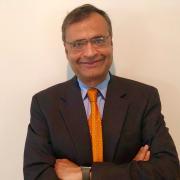
Speaker Information
Benjamin Cohen is a Senior Associate with Quantified Ventures, an impact investment intermediary that specializes in outcomes-based financing approaches, particularly Social and Environmental Impact Bonds, and helped pioneer this approach to finance green infrastructure through its work on DC Water’s 2016 Environmental Impact Bond. As part of the firm's environmental team, Mr. Cohen leads resilient infrastructure investments across the United States to scale urban green infrastructure to manage stormwater, as well as for coastal wetland restoration to reduce risks from storm surge and sea level rise, and economic resilience by providing green employment opportunities in Rust Belt cities. He previously worked on green infrastructure finance as an MBA intern at Encourage Capital, and also has experience in resilience issues internationally through his work at the UN Development Programme’s global climate adaptation team and as a Fulbright Scholar researching climate vulnerability in Nepal. He is an alum of the dual Master of Environmental Management and MBA program at Yale, and also holds a Bachelor’s degree in Biology from Williams College.
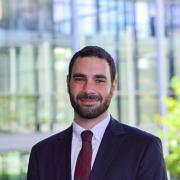
Speaker Information
Ricardo Bayon is a Partner and a member of the Board of Directors of Encourage Capital. Ricardo leads the water team and new business and innovation at Encourage and works across several other investment sectors. Ricardo is a member of the Investment Committee of the EKO Green Carbon Fund. Prior to co-founding EKO in 2007, Ricardo helped found and served as the Managing Director of the Ecosystem Marketplace, a web site and information/analysis service covering the emerging environmental markets. In that capacity he co-authored a number of publications on voluntary carbon markets, mitigation banking, and ecosystem services, including The State of Voluntary Carbon Markets 2007: Picking up Steam and Voluntary Carbon Markets: An International Business Guide to What They Are and How They Work, and Conservation and Biodiversity Banking: A Guide to Setting Up and Running Biodiversity Credit Trading System. For nearly two decades he has specialized on issues related to finance, banking, and the environment. He has done work for a number of organizations, including Insight Investments, the International Finance Corporation (IFC) of the World Bank, IUCN, The Nature Conservancy, Domini Social Investment, among others. His articles have appeared in publications such as The Washington Post, The Atlantic Monthly, and the International Herald Tribune. He has also written numerous publications and chapters on mitigation banking, biodiversity markets, markets for water quality, and other environmental markets. He was born in Bogota, Colombia, and is currently based in San Francisco. Ricardo graduated with a B.A. degree from Brown University.
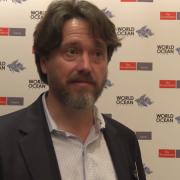
Speaker Information
Brad Gentry is the F.K. Weyerhaeuser Professor in the Practice at the Yale School of the Environment and the Yale School of Management, Senior Associate Dean for Professional Practice at the Yale School of the Environment, and a Director of the Yale Center for Business and the Environment. Trained as a biologist and a lawyer, his work focuses on strengthening the links between private investment and improved environmental performance, with a particular focus on increasing investment in natural areas. He has worked on land, water, energy, industrial and other projects in over 40 countries for private (GE, Suez Environnement, Working Lands Investment Partners), public (UNDP, World Bank, Secretariat for the Climate Change Convention, UNEP) and not-for-profit (Land Trust Alliance, The Trust for Public Land, the Northern Forest Center, SustainableCT) organizations. He holds a BA from Swarthmore College and a JD from Harvard Law School.


